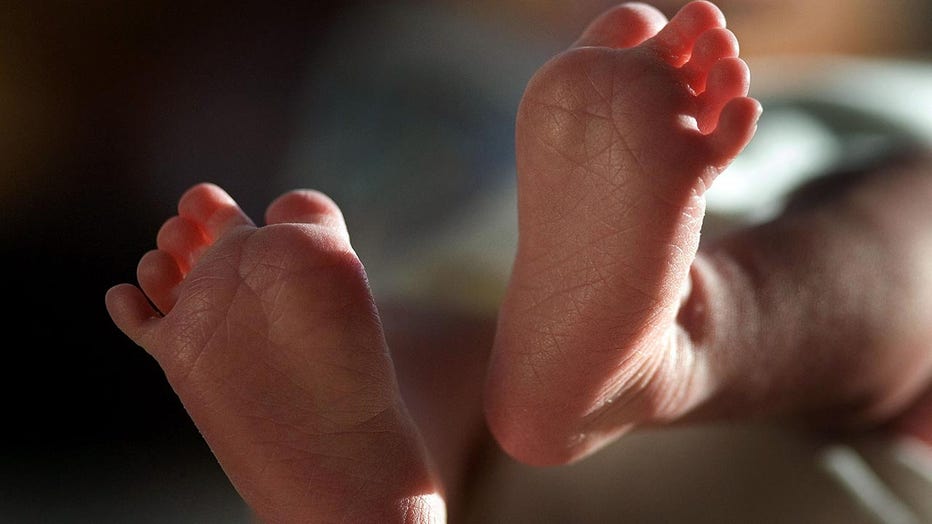Postpartum depression may last 3 years after childbirth, study finds
WASHINGTON - Intense sadness, hopelessness and anxiety among new mothers may last up to three years after childbirth, according to a new study.
The National Institutes of Health (NIH) says postpartum depression may persist after the recommended timeline for screening, citing the American Academy of Pediatrics' guidance that doctors screen women for postpartum depression several times up to six months after birth.
"Our study indicates that six months may not be long enough to gauge depressive symptoms," Diane Putnick, primary author and staff scientist in the NICHD Epidemiology Branch, said in a news release. "These long-term data are key to improving our understanding of mom's mental health, which we know is critical to her child's well-being and development."

A file image shows the feet of a 2-week-old baby. (Photo by Christopher Furlong/Getty Images)
The NIH examined data on 5,000 women from the Upstate KIDS study in New York and found that about 1 in 4 moms experienced high levels of depression up to three years after birth. The other women reported low levels of depression throughout the three years.
The women were assessed through a questionnaire and were not clinically diagnosed as part of the study.
Also, women with mood disorders or gestational diabetes (diabetes developed during pregnancy) were at higher risk of elevated, persistent depressive symptoms, per the release.
However the study author, Putnick, called for research involving a more diverse sample; the participants in the study at-hand were mainly White, non-Hispanic women.
RELATED: FDA approves first drug for treating postpartum depression
Meanwhile, information from the CDC released in May says postpartum depression can occur "up to a year after birth." The CDC also warned that untreated postpartum depression can take a toll on moms’ health and give rise to behavioral, sleeping and eating problems for the baby.
Get updates to this story on FOXNews.com.

